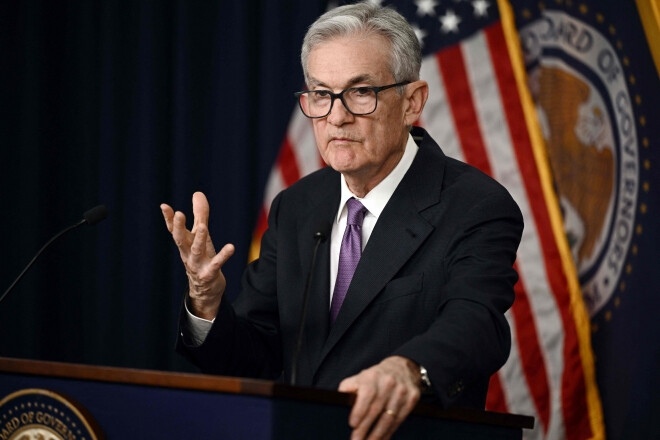
The US Federal Reserve (Fed) has decided to freeze its policy interest rate and signaled that it will not rush to cut rates. This move is expected to influence the Bank of Korea (BOK) to slow down its own pace of interest rate cuts.
The Fed's decision came after its Federal Open Market Committee (FOMC) meeting on January 28-29, where it held the policy rate steady at 4.25-4.50%. In its statement, the Fed removed the phrase that inflation was "close to" its 2% target. Fed Chairman Jerome Powell also emphasized the need for a cautious approach, stating that "the current monetary policy stance is significantly less restrictive than before and the economy is strong."
This decision puts the BOK in a difficult position as it prepares to decide on its own interest rate policy on February 25th. While there is growing pressure to cut rates due to concerns about economic slowdown, the Fed's stance makes such a move more challenging.
The Korean economy is facing increasing risks of recession, with the BOK recently warning that its growth forecast for the year could fall to 1.6-1.7%. Global investment banks have also lowered their growth outlook for Korea, with some predicting growth as low as 1.2%.
However, cutting interest rates is not without its challenges. The interest rate gap between Korea and the US is already at 1.50 percentage points, and a further cut by the BOK could widen this gap, potentially leading to capital outflows and currency depreciation.
Experts predict that the BOK may proceed with a rate cut in February, but will likely adopt a more cautious approach thereafter, aligning with the Fed's pace. Some even suggest that there may be no further cuts until the second half of the year or even until the end of the year.
One professor of economics at Hanyang University noted that while the need for interest rate cuts has increased, so have the obstacles preventing them. He added that the BOK's room for maneuver will be limited if the Fed maintains its current cautious stance.
A senior research fellow at Hana Financial Research Institute also predicted that the Fed's decision would limit the BOK's ability to implement aggressive easing policies, suggesting that there would be only one rate cut in the first half of the year.
Financial authorities in Korea are also concerned that the Fed's decision could prolong the current period of high interest rates. The Financial Supervisory Service Chairman recently warned that there is even a possibility of the Fed raising rates again if inflationary pressures persist. He urged officials to closely monitor corporate funding conditions and provide support to prevent liquidity crunches.
[Copyright (c) Global Economic Times. All Rights Reserved.]






























